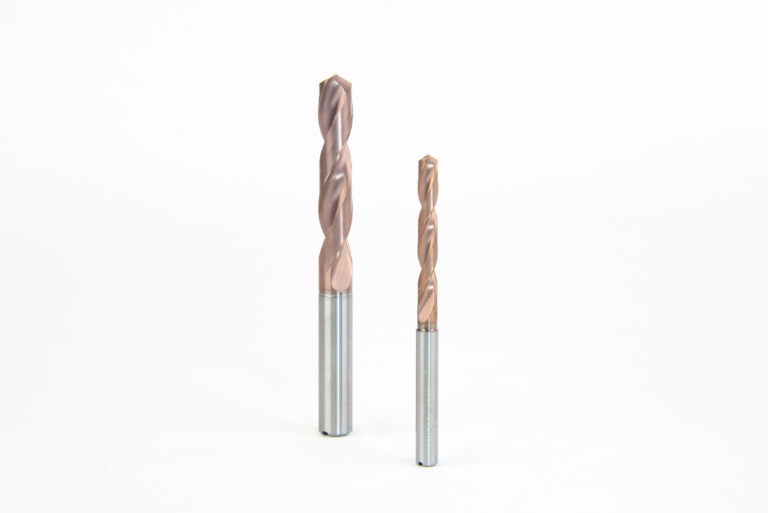Corrosion-resistant steel is also commonly known as VA steel, Inox and stainless steel. These steels are at least 10.5 per cent chromium by content. When making them, the chromium must be dissolved in an austenitic or ferritic solid solution. One example of a common grade of corrosion-resistant steel is austenitic-ferritic stainless steel. The passivating effect of the chromium oxide layer that forms makes the material highly resistant to both oxygen and acid. This layer can be further stabilized by adding more chromium. Even greater stability can be achieved through the addition of nickel and molybdenum.
Here are a few of the main stainless steel grades along with the special challenges presented by each:
- Duplex (1.4462): Duplex is a nitrogen alloyed V4A chromium-nickel steel belonging to the ISO M group of austenitic-ferritic stainless steels. This high-strength steel is in wide use. It is more ductile than stainless chromium steel. The challenges faced when machining this material include poor chip control, crater wear, significant seasonal fluctuations in quality between batches and difficulties in achieving a high surface quality.
- X6CrNiMoTi17-12-2 (1.4571): This is an austenitic stainless steel from the ISO M material group which also belongs to the V4A chromium-nickel steels. It is suitable for use at temperatures up to 550°C. The steel is easy to forge and weld while also being suitable for low-temperature applications. It is difficult to machine due to its tendency to adhere to tools (built-up edge) and due to issues relating to chip breaking, poor surface quality, and crater wear.
- X5CrNi18-10: This martensitic stainless steel (material number 1.4301) is one of the V2A chromium-nickel steels. The material is relatively soft, non-ferromagnetic and easy to process. It is commonly used in medical equipment and in the food processing and chemical industries. Issues encountered when machining the material include poor chip breaking and seasonal fluctuations in quality.
Due to its toughness, low thermal conductivity and other properties, corrosion-resistant steel is typically more difficult to machine than other steel grades. Some corrosion-resistant steels also have a tendency to work-harden, making it more difficult to drill, mill and die-cut the material. With ZCC-CT products, however, it is possible to machine corrosion-resistant steels. You can find the matching precision tool for any material from the wide assortment of high-quality cutting tools we carry.










